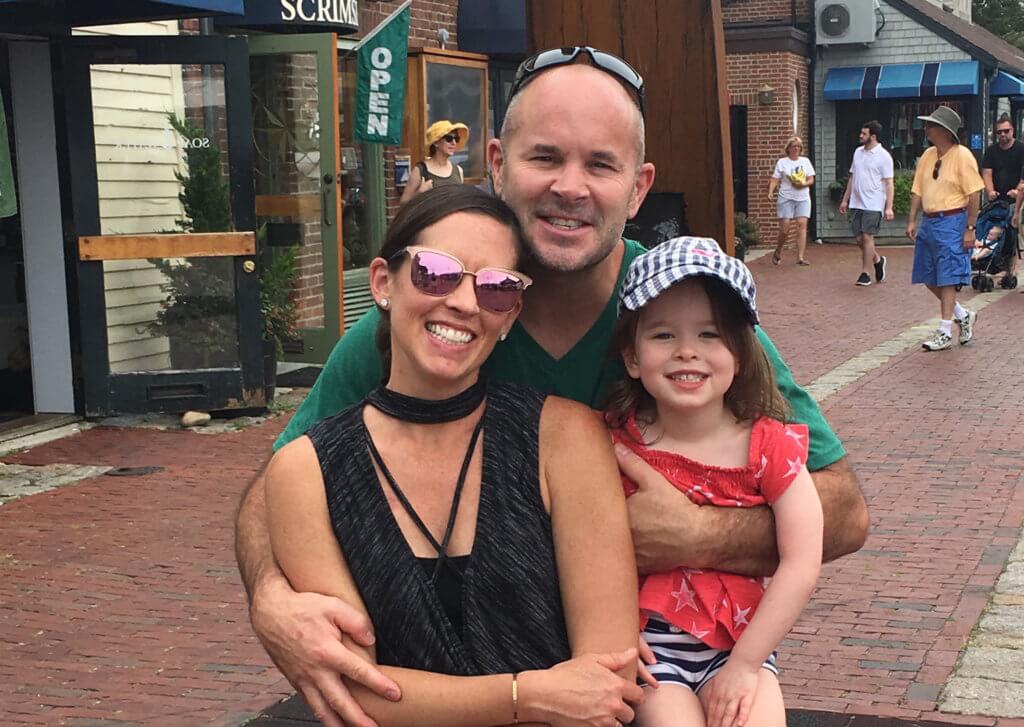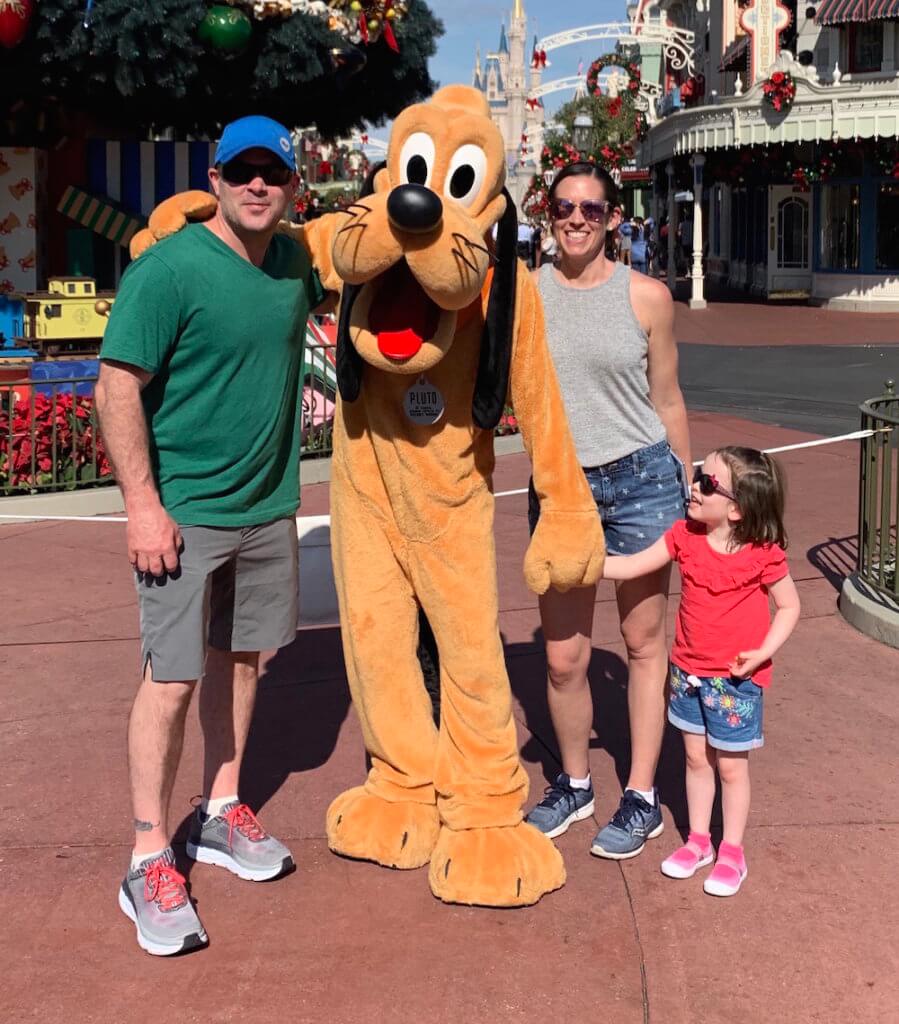At the start of 2016, Amy Ennis was poised to take on the world. She was working as a project manager for Massachusetts’ biggest healthcare provider; she and her husband, Rich, had also recently celebrated their daughter Blakely’s first birthday.
So, when Ennis went to the hospital for stomach pains and intense nausea in March of that year, the last thing she expected to confront was a stage III colorectal cancer diagnosis.
“I just remember thinking, ‘how did this happen?’” she says. “For a while, I kept trying to put the blame on something, anything, that I might have done.”
Ennis’s treatment
Ennis was placed under the care of Nadine J. McCleary MD, MPH, senior physician at Dana-Farber/Brigham and Women’s Cancer Center (DF/BWCC)’s Gastrointestinal Cancer Treatment Center.
Only 38 years old at the time of her diagnosis, Ennis is one of a growing number of young adults who are being diagnosed with colorectal cancer. Since 1994, cases of young-onset colorectal cancer (patients who were diagnosed before 50 years old) have increased by 51 percent, according to the National Cancer Institute.
“There’s been a push to figure out why this is happening and improve both the survival rate and quality of care for this patient population,” McCleary says.

Ennis underwent surgery to remove the cancer before receiving chemotherapy. Initially, this treatment plan seemed to be working — but almost a year after her original diagnosis, Ennis learned that the cancer had metastasized to both of her lungs.
“I remember getting home from the visit and my husband and I immediately cried our eyes out,” Ennis explains. “Thinking about my daughter and possibly not being there for her made everything more difficult.”
Using her daughter as motivation, Ennis prepared for another round of treatment. She underwent two lung surgeries to remove the cancerous nodules, in addition to chemotherapy. About a year later Ennis required yet another lung surgery to remove more cancerous nodules. Recently, though, Ennis received a clear scan with no growth of lung nodules and no new signs of disease.
Paying it forward
Ennis is also focused on helping other young cancer patients like herself. In 2016, she started a team called Bushy Strong (a play on her maiden name) for the Boston Marathon® Jimmy Fund Walk presented by Hyundai. The Jimmy Fund Walk supports cancer research and patient care at Dana-Farber.
“I have the chance to fund research that could benefit colon cancer patients like me,” says Ennis.
“Ennis is incredibly courageous and has an amazing spirit,” adds McCleary. “Her fundraising efforts have helped to make things better not only for herself but for others, too.”

In order to better serve patients like Ennis, DF/BWCC opened the Young-Onset Colorectal Cancer Center in 2019. Led by Kimmie Ng, MD, MPH, director, the state-of-the-art center is among the first in the country dedicated to addressing the unique needs of young patients with colorectal cancer. Research is the centerpiece of the center, which is committed to understanding the growing incidence of colorectal cancer in young adults and developing new ways to prevent, detect, and treat it.
When Ennis is not fundraising, she’s constantly looking for ways to stay healthy and active. She enjoys working out, preparing home cooked meals, a glass of wine with friends, and of course, spending time with her daughter, husband, and black lab.
“My daughter is the happiest person on earth,” says Ennis. “If I’m having a difficult day, even looking at a picture of her can help. She’s a gentle reminder of why I’m here and why I continue to fight to be here.”

Hi, my mom 70 y/o has colon CA that metastasize on her lungs. We don’t have funds for her and she is in the Philippines. We still want her to live and maybe you can help us or find ways to extend her life more. We love her so much. She has a tourist visa to come here if any medical aids available for her. Please please help us.
Sincerely yours,
Ilynne Panopio
Thank you for reading and apologies for the delay in response. Due to the high volume of comments we receive, we are usually unable to respond to each person individually. If you have a specific medical question related to this blog post, we would recommend talking to your doctor or other care provider. We’ve also gathered answers to some of the more frequent questions below:
-For more information on a particular type of cancer or the latest updates we have available, please visit our website (https://www.dana-farber.org/) or search our blog by clicking the magnifying glass at the top of our homepage: https://blog.dana-farber.org/insight/
-For information on whether you would be eligible for a certain treatment, please visit our website for more information on how to make an appointment or get an online second opinion: https://www.dana-farber.org/appointments-and-second-opinions/
-For information on clinical trials available at Dana-Farber and elsewhere, please visit the Dana-Farber database: https://www.dana-farber.org/research/clinical-trials/find-a-clinical-trial/. For clinical trials outside of Dana-Farber: http://www.clinicaltrials.gov.
Wishing you all the best,
Dana-Farber Insight team